- Home
- Harry Harrison
Harry Harrison! Harry Harrison! Page 4
Harry Harrison! Harry Harrison! Read online
Page 4
I knew very well what the war in Europe was about, since history was a subject that engrossed me: I did much extracurricular reading. So much so that someone wrote in my high school yearbook “To the guy who cheered up our history class,” meaning that I was the little shit who humiliated the young teacher by correcting her. American history, as taught then, and still I imagine now, was rather one-sided about the American Revolution. I had been reading Robert Graves’s Sergeant Lamb books about American Loyalists, an unknown and probably taboo topic. So I cheered up my history class by pointing out that the revolution was not the inspirational one-sided affair that our textbooks told us about.
I knew my current history as well: I knew what was happening in Europe. I wanted an opportunity to get at the Germans—I just didn’t want to die while doing my part.
It was three months to D-Day—Draft Day in this case. What to do? I had no money. Despite the end of the Depression my father never seemed to make a decent living; he had his personal problems. Since I was stone broke when I graduated high school I went to work in Macy’s department store as a box boy at eighteen dollars a week. Only temporary, low-paying jobs like this were open to 1As, a status that meant instant drafting when the age eighteen was reached. I did my box-boy work during the days—then at night I went to the Eastern Aircraft Instrument School in Newark, New Jersey. Tuition paid courtesy of my labors at Macy’s.
This school was fun. I liked machinery and I liked to work with my hands. By the time I was drafted I had a CAA-approved license as an aircraft instrument technician.
I turned eighteen and, the very same day, an official-looking letter arrived for me.
My childhood years were over.
My adult life was about to begin.
* * *
“Greetings.” That is how the draft notice began. It informed me that a board comprised of my neighbors had decided my fate. I was to report to Grand Central Palace in Manhattan for a physical examination. This would determine if I were fit enough to join the military. Physical examination? We were all so naïve. I must have had visions of a friendly family doctor, complete with smile and stethoscope. But, oh, how different the reality was! The physical examination proved to be a more than sufficient glimpse at the harsh reality of the real world that existed out there, well beyond family, school, and all things familiar.
By hindsight, as an adult more than sixty years later, I still consider it a gruesome and horrifying experience, surrealistic and macabre.
I took the subway to Manhattan and joined the herd of teenagers there. Processing began. The first thing that they did was take all of our clothes away. Hundreds of boys of all sizes and shapes instantly lost their individuality and each became one more nude, shivering, goose-pimpled pink piece of flesh. Yes, all pink, because it must not be forgotten that America fought this war with a segregated military. The unreliable Negroes, they said, were not to be trusted with guns. So black-skinned Americans were called up by segregated draft boards and were herded into separate noncombatant maintenance and transport units. No weapons allowed.
There was some small comfort that, while stripped naked, we were still allowed to keep our shoes on. Each of us clutched a folder of still-blank records as we were herded to our destiny. Was this humiliation deliberate sadism? Probably not; just the military’s total indifference to the individual as a thinking, separate human being. Into the elevators we went, giant cars holding thirty of us jammed tight. Up through the building to our first examination.
Well, not quite. Someone had pressed the wrong button. The doors slowly slid open before us to reveal to our horrified eyes an entire floor of female typists, all of them busily hammering away at their machines. I remember a slow rustle of movement as the petrified teenagers moved their folders in front of their shrinking genitals. The doors closed slowly, we moved on, the doors opened into the first level of hell.
Oh, Dante! How you would have relished Grand Central Palace in the cold winter of 1943! As you made your notes you might have paused for a moment in wry reflection. Here were circles of the inferno far beyond your wildest imaginings. Even the simplest medical procedure was inflated and traumatized into a surrealistic nightmare.
Consider hemorrhoids. Certainly no one could be drafted into the armed forces with hemorrhoids. Did we have visions of a pleasant proctologist, smiling and considerate? Don’t mean to disturb you, young man. This won’t take a second.…
Hah! The reality proved to be quite different. Shouted orders, first twenty men—step forward! Bend over, folders on the floor. Now reach back with both hands and grab your ass, wonderful. Now spread your cheeks—
I had a quick glimpse of a doctor all in white—your friendly family proctologist—masked and rubber-gloved and bent over in a crouch like Groucho Marx, running along behind us, flashlight extended. He must have had the keenest eyesight to spot piles in the half second of each glimpse.
Then on to the other levels of the inferno, the diabetes test. No enfeebled diabetics could be allowed into the armed forces. Pee into a numbered test tube; shuffle along in the shivering naked line, sample in one hand, folder in the other. Closer and closer to the scampering white-clad demon wearing great red rubber gloves. He needed them, for this was, to put it as delicately as possible, piss heaven. There was urine everywhere. His hospital whites were yellow with it and he stood on duckboards for the floor flowed with it. Working at speed he quickly decanted a sample into one of the racked test tubes that were each charged with reactive agents. The tubes were whisked away for a quick examination by another demon. Scribbled notes in files and on to the next level of hell.
It was a relief to sit down for a moment to prepare for the arduous psychological examination. Sexual orientation was most important in an all-male army. We were beckoned forward to be questioned by a gray-haired psychiatrist.
“Do you like boys or girls? You do like girls? Okay. Next!”
Next were the prophylactic injections to protect us against TB? Clap? Athlete’s foot? We were not told; we just endured, slowly shuffling forward to our destiny like cattle in a slaughterhouse. Mechanized medicine. Step forward to be seized from both sides as a painful hypodermic injection was simultaneously thrust into the biceps of each arm. Some of the shots were quite excruciating. A push in the back so that the victim staggered forward a few feet for two more injections. Another push enabled the draftee to move out of shot range, to lean wearily on a waiting table. To be vaccinated while resting there.
But there was a disruption—the forward momentum stopped as one of the victims could not face the waiting needles. He was a teenage weight lifter with bulging muscles but no fondness for injections. One look at the waiting needles and his eyes rolled up and he fell to the floor unconscious. This did not interrupt the production line. Processing resumed as he was dragged forward to be injected and vaccinated. Then to be pulled to one side, his folder on his chest, to, hopefully, regain consciousness. Before we could witness his fate we were moved on.
Blood tests, sputum tests, and an eye examination that a totally blind man could have passed. Other, less traumatic examinations must have taken place, I am sure. Memory is blissfully blurred by time, but it seemed an eternity. Then, countless minutes—days?—later we were permitted to dress. We turned in our files and were ordered to go home. We would be informed of the results.
We staggered out into the chill afternoon. We were too young—and too poor—to drink to drown our sorrows. For me there was only the solace of the subway and the slow trip back to Queens.
My notice came a few days later. Probably printed out and mailed even before I left Grand Central Palace. I was physically fit (as was everyone else in my class at school) and I was in the army and due to report to Camp Upton on Long Island, to be sworn into the Army of the United States. Had I been assigned to the Air Corps or was I destined to be infantry cannon fodder? They didn’t say. This was a mystery that would be revealed some time in the future. I was told—not for the firs
t time—not to think but to simply follow orders. These were blurrily mimeographed and had a Long Island Railroad ticket stapled to them.
On the specified day I said tearful good-byes to my parents and left home for the last time as a child; this was indeed childhood’s end.
Camp Upton was a monument of orderly disorder. Shouted at by sergeants, we passed numbly through a hectic first day of being issued clothing, shoes, towels, trousers, jackets, all the personal items we would need in the army. Heavily laden we were trotted off to the barracks where we were assigned bunks. We dumped our stuff and were herded off to a welcome meal in the chow hall. Hot dogs, my favorite food; maybe the army would turn out to be better than they said.
By then it was sack time, welcomed after a long and tiring day. The lights went off at nine but most of us had crashed by then.
To be hauled awake at five A.M. by a scratchy shellac recording of a tinny bugle playing reveille. Dress, eat, and then back to the barracks just in time to hear the order to fall out in formation. I turned to leave the barracks with the others.
This was when serendipity struck. A minor encounter that had a major effect on my life in the army. An older guy in the bunk next to me—he must have been at least twenty-five—looked on as I started to join the swarming crowd of recruits.
“Where you going, kid?” he asked, lying back comfortably on his bunk.
“Out. Orders. Go—”
“Just hold on a bit and think before you leap. This is a reception center. None of the permanent-party jokers who run this operation even know that you are here. The only thing you gotta do is once a day read the bulletin board—that’s at eleven o’clock every day—to see if you are on a shipment. If you are not, then what you gotta do next is stay out of sight for twenty-four hours. Easy.”
He climbed slowly to his feet. “Come with me. I been here a week and know the drill.”
Instead of going out into the company street with all the other draftees he led the way to the rear of the barracks and through a door into the boiler room.
“The MPs never look in here until a lot later. My name is Blacky.”
He was a treasure, Blacky was. He had been a cavalryman in the peacetime army, and had gotten discharged—just in time to be drafted again. But oh, how he knew the ropes. He was a world-class authority on what had been called goldbricking during the First World War, but was now referred to as fucking off. That is, avoiding work and not getting caught doing it. As we rested in the cool darkness he explained that our fellow draftees were now being assigned to work details. All we had to do was wait until they had all marched off, then we could emerge to spend a quiet day in the sun.
And it worked. During lunch I recognized newly minted soldiers from our barracks glumly working as KPs on the chow line. At eleven we checked for shipping orders; nothing. So back to dodging MPs for another twenty-four hours.
I was some weeks in the reception center resolutely dodging work—and the MPs who were sent out to round up the stragglers like myself. Camp Upton had lots of First World War underground ammunition bunkers, now empty. They made a good place to hide during the day—until the MPs got wise to this scam. They caught Blacky in a surprise raid. They shipped him out and I never saw him again—but I thank him fervently for his basic military education.
About this time I found the post library, far safer than the bunkers because the illiterate MPs never thought of looking there. In the weeks that followed, while waiting for my shipping orders, I happily worked my way through Wells and Verne and waited for events to unfold.
After a month of this literary life I was pleasantly surprised to discover that the Eastern Aircraft Instrument School had indeed saved my life. Every morning I emerged from the boiler room and, before my library assignment, I dutifully read the shipping orders posted on the bulletin board. There, at last, was my name. I was in the Army Air Corps and was being sent for basic training to Keesler Field, Biloxi, Mississippi.
That was the end of the good news. I was going to Mississippi in July. Remember, this was before air conditioners were invented. Even officers suffered the humid summer heat like the rest of us.
Two days later I dragged my barracks bag onto the troop train and the journey south began. After an endless, boring, and slow troop-train ride we reached our destination well after midnight and de-trained into the waiting fleet of trucks. Then, as soon as we arrived in Biloxi, the military made it very clear at once just where I stood. At two in the morning, temperature and humidity both in the nineties, I watched as my barracks bag, with all my worldly possessions, was kicked off the back of a six-by truck by a sergeant—and into the mud puddle below. Message received.
Hell began at five the next morning. Like at Camp Upton, reveille was announced by an ancient shellac record. Scratch, scratch, scratch—followed by the sour bugle call. Then the lights came on and the sergeant went down the rows of bunks—kicking each of them as he advanced—calling hoarsely, “Drop your cocks and grab your socks—you’re in the army now!” Had there ever been any doubt? Pull on your fatigues, dress in a rush, pee, and wash, double-time to the chow hall, then a full day of unremitting labor in the ninety-degree heat. That often continued through the night as well. Skinny kids got skinnier as they sweated off the pounds—fat kids enjoyed an inadvertent slimming session. We didn’t have time to think about it—just obey the screaming devils that tormented us.
Now, looking back through the telescope of time, it is obvious what they were trying to do—stress us to see if we broke. The majority of us were healthy eighteen-year-olds. Our drill sergeants—far older but far tougher—were subjected to the same stresses that we were. So logically we could not complain, but this basic training held a fierce and deadly truth.
The army was doing its best to strain us to the breaking point—and beyond. If we broke down, there would be a pat on the back and an honorary discharge. There was a fierce if terrible logic at work here. If we were going to break, they wanted it to happen in these first weeks, not later after we had received expensive training and the investment of plenty of military bucks.
It made horribly logical sense but the price paid was a disaster to the individual involved. I watched nice, happy kids get slowly worn away—then crack. Emotionally or physically; the military didn’t care. The motto was shape up or ship out. Let me tell you—it was a very thin line between winning and losing. I remember coming right up to that line.
I had lost weight and had not yet started to put it back on as muscle. We were asleep in the barracks, dumbly and deeply, when the lights came on at midnight and we were shouted awake. A forced night march, twenty miles, field packs and rifles, let’s go. We shuffled numbly out into the night.
It is hard to describe what we experienced. Tired to begin with, we dragged along the sandy track between the trees. The temperature was still in the high eighties, high humidity, silence, except for the sound of shuffling boots in the sandy track. The army expected us to fail. The column was followed by an ambulance—called the meat wagon—with lowered lights so as not to run us down. Orders were that if a guy dropped, the two nearest GIs were to pick him up and dump him into the back of the following vehicle. If and when he came to he was supposed to start marching again.
All of us were on the verge of exhaustion, staggering as we walked. Nor did it get any better as the night wore on. I remember stumbling as I walked, tormented by the sand under my shirt rubbing against the heat rash there, ground down by my pack. I was over the edge of exhaustion and ready to fall down. It was at that moment that I made a discovery about myself—I did not want to fall down. I did not want the bastards to win. This feeble spark of anger kept me going. Until the next five-minute break then through the rest of the march and back to the barracks to drop my pack and rifle and crash onto my bunk. Oblivion had never felt better.
Written out now, decades later, this may not sound like very much. But it was victory for that eighteen-year-old kid, something he would never forget. I ha
d not let the bastards win. For many years I remembered this and from it drew strength when it was really needed. For a teenager with very little self-esteem I had finally felt some.
And it worked. I kept going. I managed to put on eight pounds—and all of it muscle. I finished the seven weeks of basic training, along with the survivors of my squad. We had lost a few guys along the way, for various reasons. The most tragic of these was Sol, who simply gave in. It was terrible to watch—particularly since he did not have to do it. He was well built and physically fit. It was purely mental, and the help he got from his bunkmate didn’t seem to help. His name was Irving—he was also Jewish—and he took Sol under his wing.
I never found out if Irving was drafted or had volunteered. He didn’t belong there. He was over thirty and a professor of hydraulics at Columbia but he did manage to make it through basic, doing his best all the time to help Sol. He sat and talked to him, encouraged him, did everything that he could, but Sol had given up. He used to complain about everything—and there was certainly enough to complain about. He dwelt on it, a reedy whine of complaint. He had stopped eating and then one day he wouldn’t get out of his bunk. A couple of MPs came by and talked to him, then took him away. We never saw him again.
Irving kept track of him, bugging the detail sergeant. Then one day he told us that Sol had got a Section Eight and been shipped home—honorable discharge for psychiatric reasons. The bastards had simply ground him down, and in doing so had destroyed his life. It was a complete waste. If he had not been drafted he would undoubtedly have led a useful and productive life, but the military had found a little weakness and worried away at it until they had brought him down. On an ironic note: Irving got through basic and was assigned to the military scholastic program. They sent him back to Columbia to teach hydraulics.

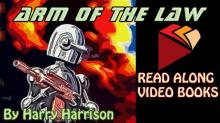 Arm of the Law
Arm of the Law The Velvet Glove
The Velvet Glove The K-Factor
The K-Factor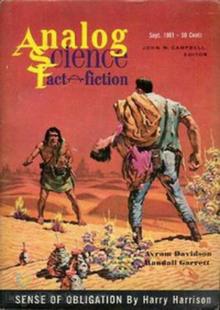 Sense of Obligation
Sense of Obligation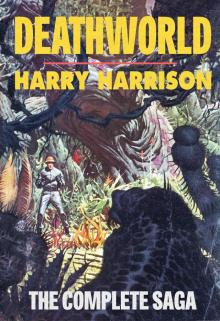 Deathworld: The Complete Saga
Deathworld: The Complete Saga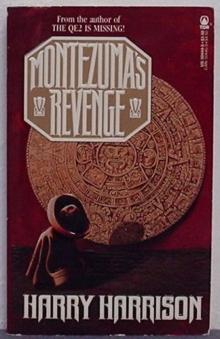 Montezuma's Revenge
Montezuma's Revenge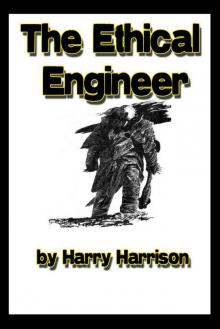 The Ethical Engineer
The Ethical Engineer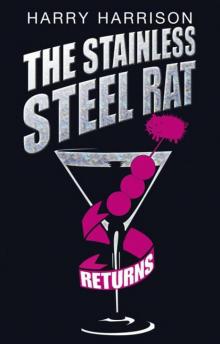 The Stainless Steel Rat Returns
The Stainless Steel Rat Returns The Misplaced Battleship
The Misplaced Battleship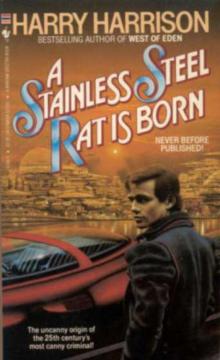 The Stainless Steel Rat is Born
The Stainless Steel Rat is Born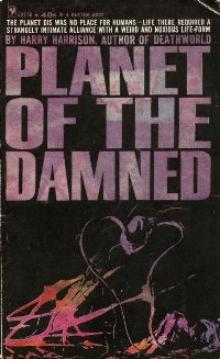 Planet of the Damned bb-1
Planet of the Damned bb-1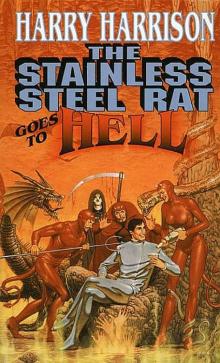 The Stainless Steel Rat Goes to Hell ssr-10
The Stainless Steel Rat Goes to Hell ssr-10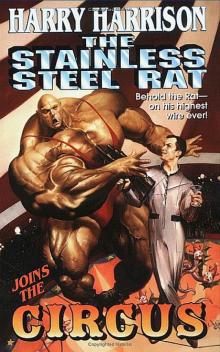 The Stainless Steel Rat Joins the Circus ssr-11
The Stainless Steel Rat Joins the Circus ssr-11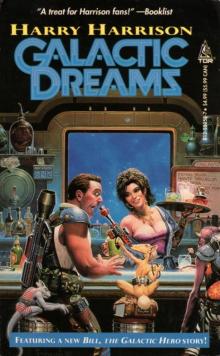 Galactic Dreams
Galactic Dreams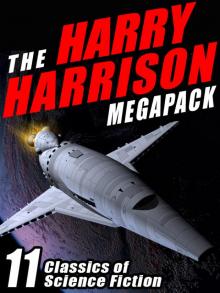 The Harry Harrison Megapack
The Harry Harrison Megapack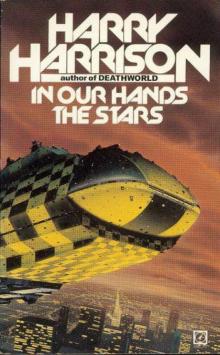 In Our Hands the Stars
In Our Hands the Stars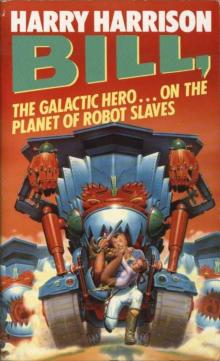 On the Planet of Robot Slaves
On the Planet of Robot Slaves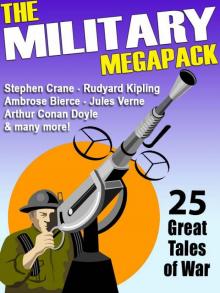 The Military Megapack
The Military Megapack Make Room! Make Room!
Make Room! Make Room!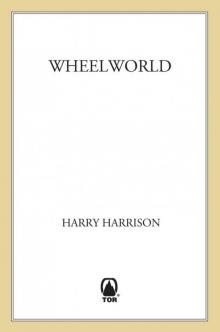 Wheelworld
Wheelworld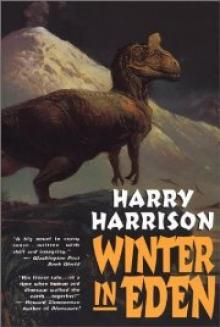 Winter in Eden e-2
Winter in Eden e-2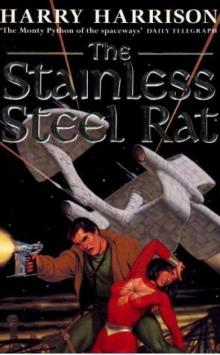 The Stainless Steel Rat
The Stainless Steel Rat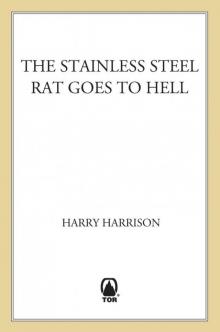 The Stainless Steel Rat Goes to Hell
The Stainless Steel Rat Goes to Hell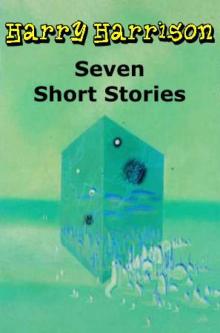 Harry Harrison Short Stoies
Harry Harrison Short Stoies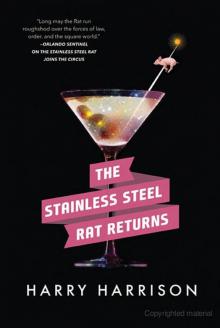 Stainless Steel Rat 11: The Stainless Steel Rat Returns
Stainless Steel Rat 11: The Stainless Steel Rat Returns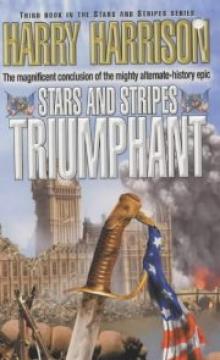 Stars and Stripes Triumphant sas-3
Stars and Stripes Triumphant sas-3 West of Eden
West of Eden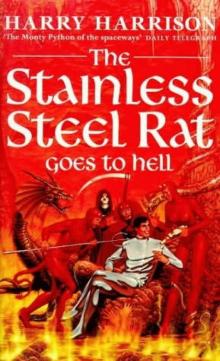 The Stainless Steel Rat Go's To Hell
The Stainless Steel Rat Go's To Hell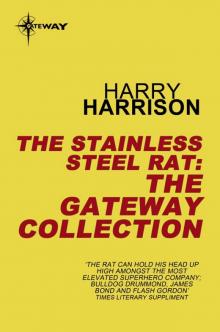 The Stainless Steel Rat eBook Collection
The Stainless Steel Rat eBook Collection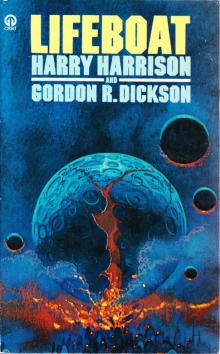 Lifeboat
Lifeboat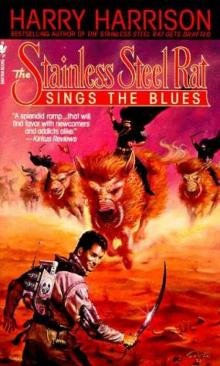 The Stainless Steel Rat Sings the Blues
The Stainless Steel Rat Sings the Blues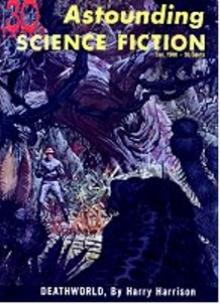 Deathworld tds-1
Deathworld tds-1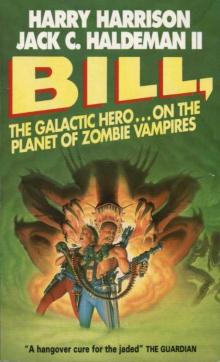 On the Planet of Zombie Vampires
On the Planet of Zombie Vampires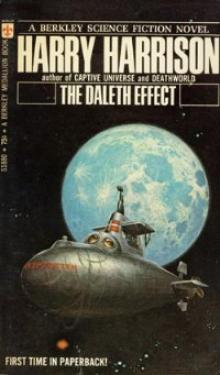 The Daleth Effect
The Daleth Effect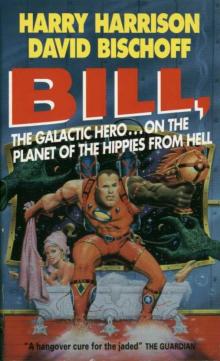 On The Planet Of The Hippies From Hell
On The Planet Of The Hippies From Hell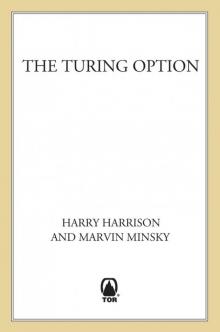 The Turing Option
The Turing Option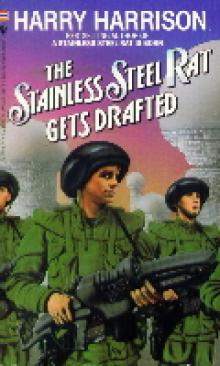 The Stainless Steel Rat Gets Drafted
The Stainless Steel Rat Gets Drafted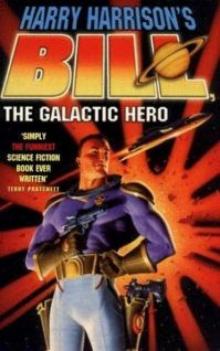 Bill, the Galactic Hero btgh-1
Bill, the Galactic Hero btgh-1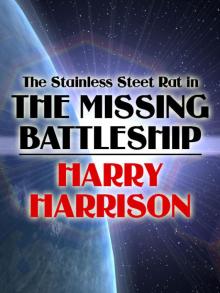 The Stainless Steel Rat in The Missing Battleship
The Stainless Steel Rat in The Missing Battleship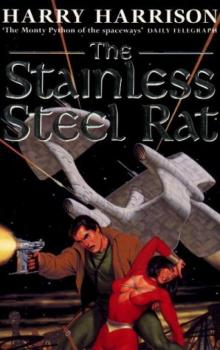 The Stainless Steel Rat ssr-1
The Stainless Steel Rat ssr-1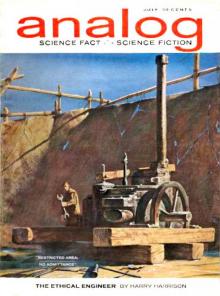 The Ethical Engineer (the deathworld series)
The Ethical Engineer (the deathworld series)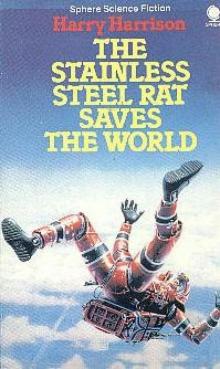 The Stainless Steel Rat Saves the World ssr-3
The Stainless Steel Rat Saves the World ssr-3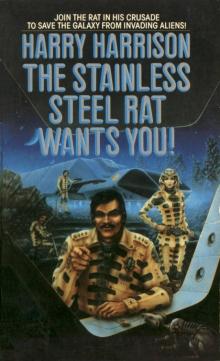 The Stainless Steel Rat Wants You
The Stainless Steel Rat Wants You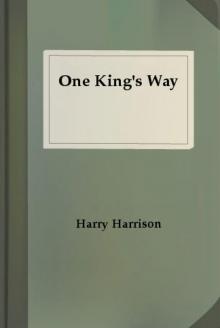 One King's Way thatc-2
One King's Way thatc-2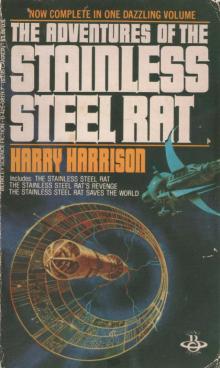 The Stainless Steel Rat Saves The World
The Stainless Steel Rat Saves The World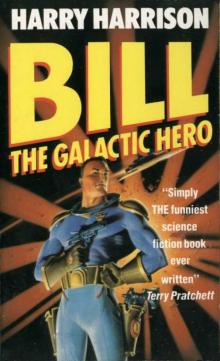 Bill, the Galactic Hero
Bill, the Galactic Hero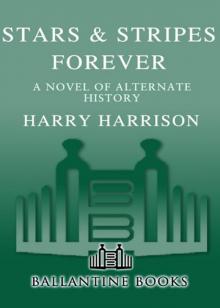 Stars & Stripes Forever
Stars & Stripes Forever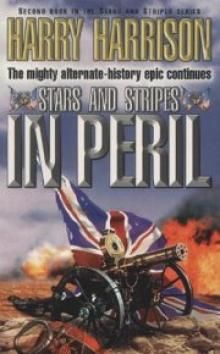 Stars and Stripes In Peril sas-2
Stars and Stripes In Peril sas-2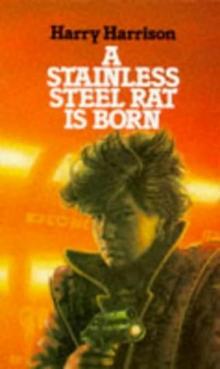 A Stainless Steel Rat Is Born ssr-6
A Stainless Steel Rat Is Born ssr-6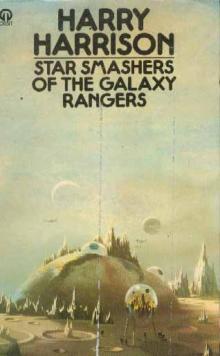 Star Smashers of the Galaxy Rangers
Star Smashers of the Galaxy Rangers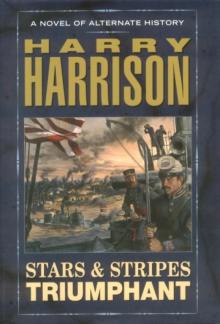 Stars & Stripes Triumphant
Stars & Stripes Triumphant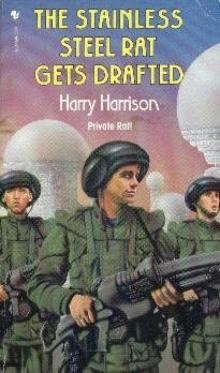 The Stainless Steel Rat Gets Drafted ssr-7
The Stainless Steel Rat Gets Drafted ssr-7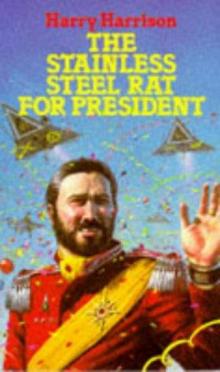 The Stainless Steel Rat for President ssr-5
The Stainless Steel Rat for President ssr-5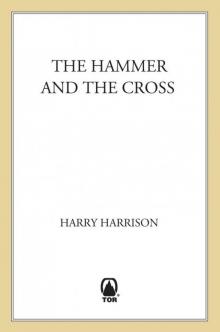 The Hammer & the Cross
The Hammer & the Cross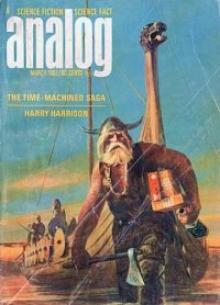 The Technicolor Time Machine
The Technicolor Time Machine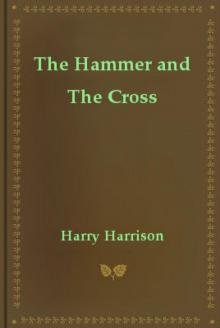 The Hammer and The Cross thatc-1
The Hammer and The Cross thatc-1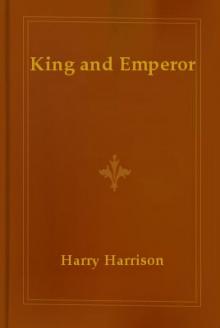 King and Emperor thatc-3
King and Emperor thatc-3 Return to Eden
Return to Eden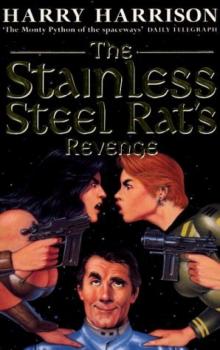 The Stainless Steel Rat’s Revenge ssr-2
The Stainless Steel Rat’s Revenge ssr-2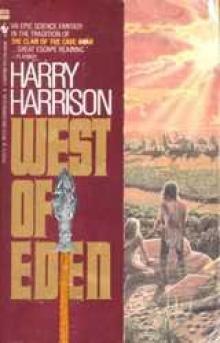 West of Eden e-1
West of Eden e-1 Return to Eden e-3
Return to Eden e-3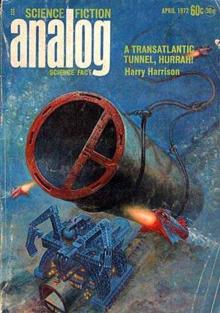 A Transatlantic Tunnel, Hurrah!
A Transatlantic Tunnel, Hurrah!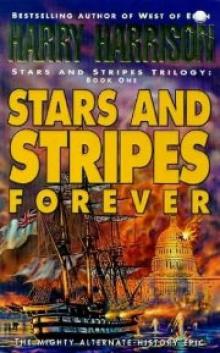 Stars and Stripes Forever sas-1
Stars and Stripes Forever sas-1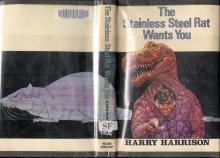 The Stainless Steel Rat Wants You ssr-4
The Stainless Steel Rat Wants You ssr-4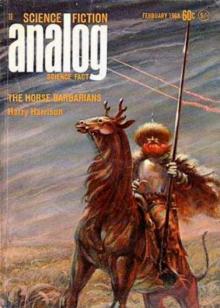 The Horse Barbarians tds-3
The Horse Barbarians tds-3 Planet of the Damned and Other Stories: A Science Fiction Anthology (Five Books in One Volume!)
Planet of the Damned and Other Stories: A Science Fiction Anthology (Five Books in One Volume!)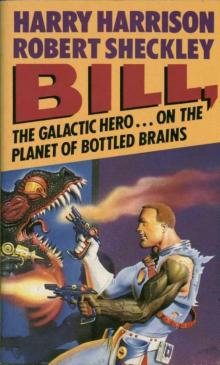 On the Planet of Bottled Brains
On the Planet of Bottled Brains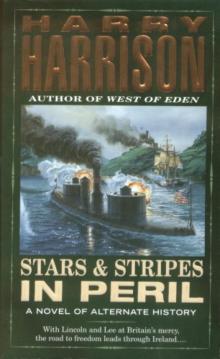 Stars And Stripes In Peril
Stars And Stripes In Peril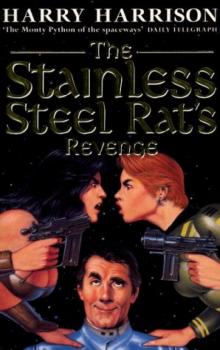 The Stainless Steel Rat's Revenge
The Stainless Steel Rat's Revenge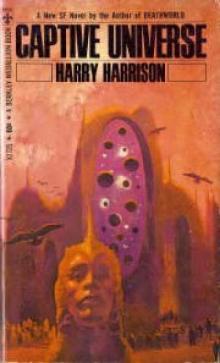 Captive Universe
Captive Universe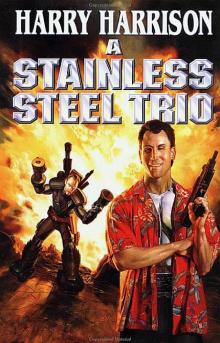 The Stainless Steell Rat Sings the Blues ssr-8
The Stainless Steell Rat Sings the Blues ssr-8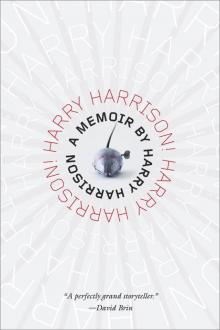 Harry Harrison! Harry Harrison!
Harry Harrison! Harry Harrison! Winter in Eden
Winter in Eden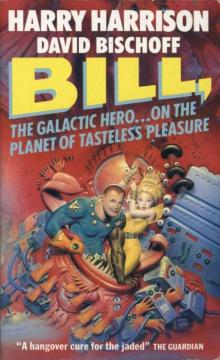 On the Planet of Tasteless Pleasures
On the Planet of Tasteless Pleasures